
Review: The Veil, "The Camp" & "Crossing the Bridge" | Season 1, Episodes 1 & 2
Another limited series, another strong performance from a star in a ¯\_(ツ)_/¯ of a show
As we continue to evolve our coverage patterns, we will keep exploring new ways of writing about TV episodically. In this case, The Veil is a show I watched in case it merited weekly discussion, but it didn’t, but I still want to put my labor to use and reflect on the opening episodes and then return back for the finale in a few week’s time. This review is free for all, while the finale review will be exclusively for paid subscribers.
This might seem like an odd place to start this review, but let’s consider one of the first scenes of the second of two episodes of The Veil that debuted today on Hulu. As “Crossing the Bridge” returns to our central duo, British spy Imogen and potential terrorist Adilah have been sleeping in their car on their journey from the refugee camp they escaped to Istanbul. Imogen is dreaming of a man we don’t yet know (James Purefoy), our first glimpse of some of her own trauma, and when we return to the mountains of Turkey the women continue to engage in the mind games of two people that must reconcile their need to trust someone else with the inability for trust to exist in a given situation.
Those mind games, though, have a surprisingly light tone. There’s no doubt some high stakes involved—like when Adilah transcribes the number that called Imogen—but the fight over the needle is basically physical comedy, and right before they get back on the road we learn some of their tension is actually because Adilah disapproves of belly dancing and Imogen simply won’t stand for it.
The following scene makes clear that situations like this are part of Imogen’s particular set of skills—as they drive to Istanbul, she uses it as a wedge to dig into Adilah’s radicalization and her relationship to religion. While the show’s actual opening scene is an extremely on-the-nose introduction of Imogen—as she asks to become known for this mission but is being used as her name in marketing materials—as some kind of super spy, her buddy comedy moments with Adilah are a much more compelling glimpse of the kind of work she does, and why she’s in such high demand. But what becomes clear across these two episodes is that the ultimate success of The Veil will depend less on its ability to pitch us on Imogen’s skills as an operative, and more on its ability to take those skills and craft a compelling story around them.
The Veil is the latest in a lineage of twenty-first century terrorist television series, and it’s easy to draw a straight line between Elisabeth Moss’ Imogen and Claire Danes’ Carrie Matheson in Homeland. Sure, Imogen has some Jack Bauer/Jason Bourne DNA mixed in there to show we’ve come a bit further with our female protagonists in the intervening years, but the overall dynamic is of a woman who approaches a job often bogged down in rules and procedure from a new perspective that makes her the right person for the job. It’s something that is said often across these episodes, and while there’s a risk of “show, don’t tell” becoming a mantra, on the whole I’d say that I think Imogen does enough in these episodes to make the hype seem warranted if a bit repetitive.
What separates the show from past examples like Homeland and 24 is its tight pace: not only is the limited series only six episodes, but two of those episodes are even under 40 minutes. And while there are other storylines focused on the French and American operations surrounding the case in question, the core of the show remains the dance between Imogen and Adilah, and the stakes attached to it. These first two episodes are built on the audience—like Imogen—evaluating whether it’s possible that Adilah is actually an ISIS commander, or whether it’s a matter of mistaken identity. On this front, Imogen’s own identity being such a mystery is an added bonus, as it suggests she knows enough about playing a part to know when someone is doing the same. And while “The Camp” gives us mostly vibes to work off of, “Crossing the Bridge” gives us a promise of answers in the form of a DNA test, only to find out at episode’s end that Imogen won’t accept the results…right before we get confirmation that Adilah used her time in Istanbul to send a message to who we presume is an ISIS operative.
After getting burned on The Regime, I have to be upfront with y’all: I am writing this having seen the entire first season of The Veil (which is technically being labeled a limited series, but I specifically asked about the idea of extending the Imogen character beyond this season at TCA and everyone seemed onboard). Now, I am still writing this review from the perspective that I recall having after watching just the first third of the season, but I needed to understand whether it was worth your time or our budget to spend the next few weeks discussing the series. And the simplest answer is that if you’re not invested by the end of this two-episode premiere, I don’t think that your opinion is going to change by the end of the season. That is not to say that the rest of the season is demonstrably worse than what you see here, or that they drop any particular ball that’s thrown in the air in these opening episodes. It’s rather that this is an accurate reflection of the show’s intention, one that feels decidedly old fashioned.
Perhaps the best parallel I can think of would be Bodyguard, the 2018 Netflix series that Wikipedia claims will still be getting a second season eventually. Like that show’s interest in modern dynamics of PTSD and government surveillance, The Veil wants to explore the modern dynamics of both espionage and terrorism. However, as with Bodyguard, there’s this fall back into 24 territory as the plot unfolds, as though modernity cannot shake the appeal of the 2000s plots that gave their respective genres a foundation.
Now, that having been said, The Veil is distinct for how it positions Adilah within its story. I don’t have a whole lot to say about Imogen: Moss is a skilled performer, but I don’t know that I left these episodes all that concerned about her situationship with her French handler Malik (Dali Benssalah) or the tension she shares with her ugly American liaison (Josh Charles, who does some subtle work with unsubtle writing). But by comparison, Yumna Marwan has a more challenging task of humanizing a would-be terrorist, while also holding her own with the Emmy-winning Moss. Through these two episodes, I’d contend that Marwan is the most interesting presence—there needs to be enough connection with the character after these two episodes that we don’t read the ending as an outright indictment, and there is. We might know she’s lying to Imogen, but we also know enough that her involvement with ISIS probably isn’t a simple binary, and that’s meaningful.
But do I think that there’s a meaningful conversation we’re going to have in the intervening weeks to justify coverage? No. And this does feel like a microcosm of this year’s limited series arms race, where channels line up big stars and slot them into projects like this and The Regime where a shrug feels like the most appropriate response even if the star in question is putting in a great performance. The Veil is not a bad television show, and its short episodes will make an attractive binge experience once all the episodes air by the end of May, but I don’t think there’s a meaningful play for the zeitgeist here, and thus I expect this will be all but forgotten by the time we reach the Emmys…but I’ll get more into that when I loop back around for the finale for anyone who chooses to tune in as the season progresses.
Stray observations
If you’re solely interested in some attractive scenery, there’s plenty of that to be found here, with location shooting across Europe. And look, I don’t think they were wrong to buy in solely on “Elisabeth Moss acting in European locales,” even if that’s not enough to sustain a show.
I always wonder how much the internationalizing of a given text is a byproduct of trying to either sell it or to leverage some kind of tax incentive—it seems very strange that a story about a British spy would be centered around conflict between the U.S. and France, unless you realize they want to set part of it in Paris and it’s primarily produced out of America.
I rightfully spent my TCA question on the idea of whether this is a character they would be interested in revisiting, and the showrunner was joining via satellite and wasn’t available for followups, but I feel like my question for any project like this is when exactly the idea was originally conceived. Was this a 2012 script that got dusted off? Or is its throwback quality a contemporary instinct?
Speaking of followups: this was the only FX panel that didn’t have any onstage followups, which I’m guessing was primarily due to Moss being pregnant. That’s also once again delayed production on the final season of Handmaid’s Tale, which will likely go two and a half years between seasons.

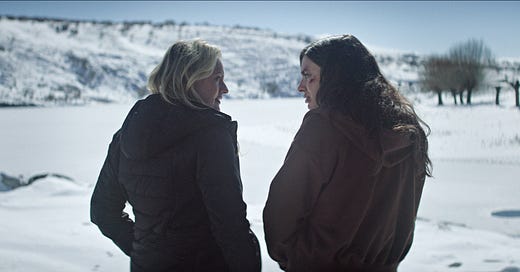



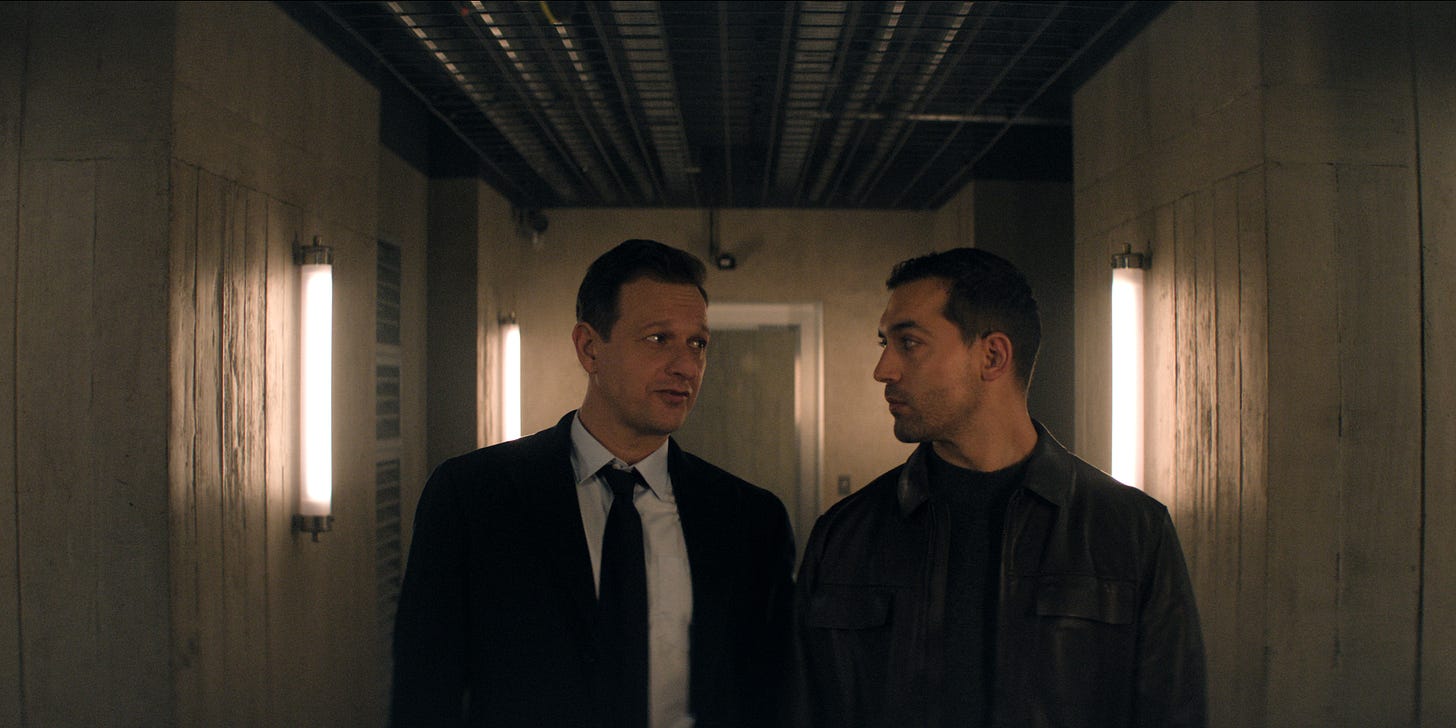




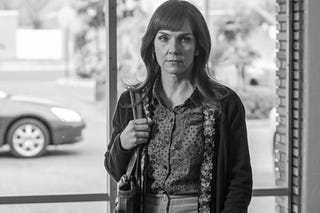

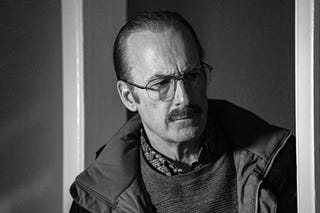

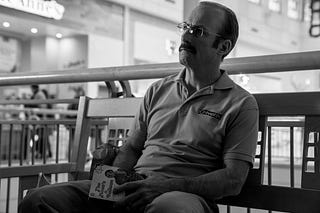
In addition to Homeland, this also kind of reminded me of Killing Eve in the central relationship between two women. Josh Charles is perfect casting for "the most American American." Pretty watchable so far, but it's hard to really advocate for it when The Sympathizer is a more interesting star-driven miniseries that also hasn't made a dent in the zeitgeist.